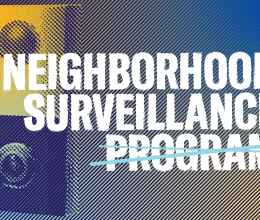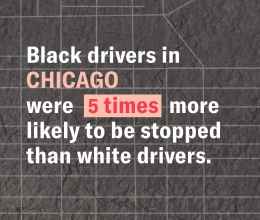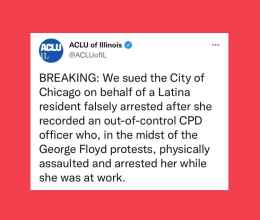
CHICAGO – Seeking answers about how automatic license plate readers are used – and how information garnered from the technology is stored and shared, the American Civil Liberties Union of Illinois today asked a number of law enforcement agencies across the State of Illinois for more information about the growing use of such technology. The requests to ten (10) local law enforcement agencies – including the Chicago Police Department, the Illinois State Police and two state agencies are part of a nationwide effort by the ACLU to learn how this rapidly-expanding technology is being utilized.
Automatic License Plate Readers (ALPRs) are cameras mounted on patrol cars, stationary objects or integrated into “red light” cameras. The cameras snap a photograph of every license plate that enters a field of view. The license plate number is then compared to a database, which can alert to a patrol officer whenever a match or “hit” occurs. According to media reports, ALPRs are being used by Illinois law enforcement officials for everything from trying to identify cars used to abduct children (Amber alerts) to seeking motorists who owe the local municipalities for parking tickets.
“This technology permits law enforcement to track our location whenever we drive our car,” said Karen Sheley, staff attorney for the ACLU of Illinois. “More important, the record of where a motorist is at a given moment can be stored forever and shared with others. Illinois motorists have a right to know how this technology is being used, and whether its use is limited to the purposes publicly stated.”
The use of ALPRs is expanding rapidly across Illinois and across the nation. Little is known, however, about how these devices are utilized to track motorists’ movements, including how long data collected by ALPRs is stored, and whether local police departments poll this information in state, regional or national databases. The ACLU believes that if this technology is being utilized for routine tracking and surveillance of every motorist, then residents have a right to know this is taking place.
Today’s letters, sent under the Freedom of Information Act, seek to discover the extent of ALPR usage, how the information is used once captured, how data gathered by ALPR is shared with other agencies, and what types of data are stored and for how long the information is stored. The letters today were sent to the Illinois Emergency Management Agency and the Illinois Department of Transportation, the Illinois State Police and police departments in Chicago, Lemont, Burbank, Oak Forest, Streamwood, Hanover Park, Bellwood, Evanston, Springfield and the Metro East area.
“We believe that the growing use of easily deployable technology to monitor residents means that police departments must be more transparent and open about the way in which they use the data they gather,” added Sheley. “Without modest regulations, these powerful technologies can be abused and used to invade the privacy of residents.
More information about the national ACLU project is available at www.aclu.org/plates.



